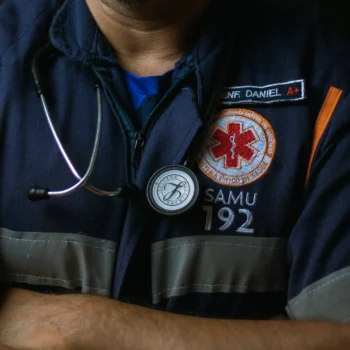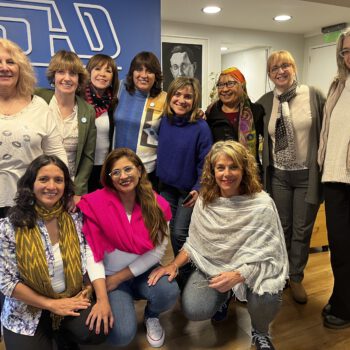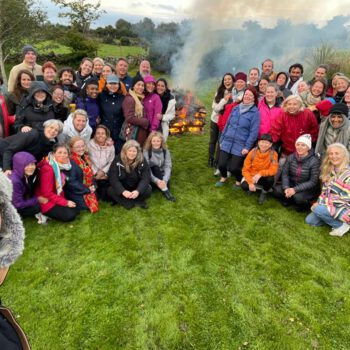by Ignacio Dominguez Lemoine
It’s been one year now since we co-created this Focus Group and its aim has been to research how Compassionate Inquiry can be applied to the process of preparing and integrating experiences with psychedelics.
There’s a wide spectrum in what some people call a ‘psychedelics renaissance,’ — from underground recreational explorations (in most countries), to studies that use MDMA for the treatment of fear in PTSD; or studies on the effects of psilocybin treatment for chronic depression being carried out by some of the world’s most renowned universities, and psychedelics-assisted psychotherapy, to name but a few.
With increasing interest in a subject, complications can arise. We created this Focus Group to explore different aspects of professional training, the ethics of care, and the unquestionable need to create spaces for dialogue and integration of these experiences.
Our intention was to create a space where we could explore different ways to approach working through trauma with psychedelics, sharing experiences in the field, and building bridges between ancient traditional medicine practices and modern psychotherapy.
This has been a very rewarding journey, and we’ve had the great fortune to receive various notable guests from around the world, who have kindly offered us their insights and experiences. We have also started a study group to read Marc Aixalá’s book Psychedellic Integration, and more and more enthusiastic people have now started to join the conversation.
Guest PhD Jaime Andrés Vinasco Barco, Director of Consciencia Viva Foundation
For those who are unfamiliar with the potential of psychedelics, I would like to offer some ideas that I believe are relevant and valuable to therapeutic processes.
As Gabor and Peter Levine propose, trauma is a disconnection from ourselves. Psychedelics can offer us the experience of deep connection and presence; they allow us to explore the underlying causes of our suffering, to reconnect with our wounds and give meaning to painful and repressed memories stored in our subconscious. These substances allow us to be empathic witnesses of our story.
Childhood trauma moves us away from our authenticity, from our essence, so that we can sustain a form of attachment as we build defense and adaptation mechanisms. In a process with psychedelics or medicine, as it is called in indigenous traditions, we experience amplified states of consciousness. There is a great amount of research on the subject but much of it has yet to be explored in depth.
Cerebral connections, on the right is the brain of a person who has taken psilocybin and on the left is the brain of a person who did not receive the drug. Taken from the Royal Society Magazine.
Cerebral scans from the Beckley/Imperial Research Programme. The images show that psilocybin and LSD generate greater connectivity between regions of the brain that normally do not communicate, which leads to a more integrated brain.
Studies show that psychedelics promote neuroplasticity, which is the brain’s capacity to recover, restructure and adapt to new situations. Brain scans suggest that when we consume psychedelics, the activity in our Default Neural Network (DNN) decreases, while the activity in other areas of the brain increases. Our DNN becomes active when we rest, and becomes inactive when we engage in activities that require focus. DNN is related to the way we see ourselves and others, with rumination and wandering. The decrease in activity is related to what is called a dissolution of the ego and the decrease in rumination. In other words, we could experience a mental reset, an increase in brain connectivity (see graphics) and greater cognitive integration, which is related to the decrease of anxiety and depression. A treated cognitive flexibility allows us to have new points of view about something that happened in the past, who we are, and our relationship to the world.
In addition, Leor Roseman, staff at Beckley/Imperial psilocybin research explains that experiences that characterize a process with psychedelics, which can be described as mystical, ecstatic, unified and happy, are correlated to a reduction in the symptoms of depression.”
The experience itself is not what allows healing to happen, but rather what we do with the content that emerges during the psychedelic experience. An experience can be mystical, biographical or insightful. It may allow us to be empathic witnesses of a past event, recognize our needs, or gain clarity about who we are and what we want. What we do with this information, how we process it and integrate it into our lives, is key. This is why having a trauma-informed perspective is very useful and this is where CI is a key factor in the equation.
Our aim is to provide and share information, to make these experiences more safe and fruitful. We always recommend seeking out professionals with high-level expertise on the use of substances before venturing into this experience.
Here are some useful resources to read more about this topic:
Chapter 31 “Jesus Christ in the tipi: psychedelics and healing” from The Myth of Normal by Dr. Gabor Maté.
This talk with Gabor https://www.youtube.com/watch?v=oj7q9GvMnRQ
MAPS https://maps.org/
ICEERS https://www.iceers.org/es/
The Beckley Foundation https://www.beckleyfoundation.org/
With gratitude,
Ignacio Dominguez Lemoine



